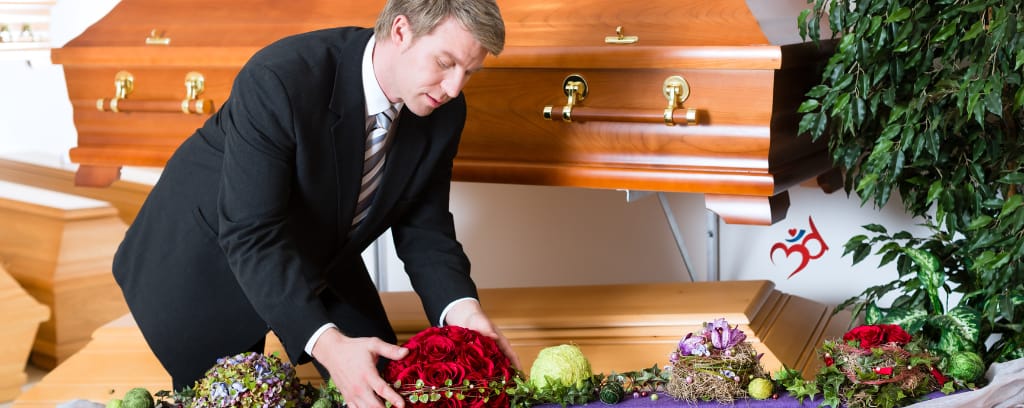DISCLAIMER: This post contains general information about a course we teach on employment law. It is not legal advice and could be considered attorney advertising. If you are uncertain about your legal obligations, we strongly recommend you schedule a consultation with an attorney. It doesn’t have to be our firm, but if we’re a good fit for your current needs, we’d love to work with you.
As a holistic employment attorney and mediator based in New York City, I’ve had the privilege of serving the legal needs of various professionals and small businesses, including funeral homes for nearly two decades. I have also been teaching continuing funeral education (CFE) courses since 2011. Here are some insights from a course I am currently offering on Setting Clear Objectives for Employees.
Why This Course Matters Now
Twenty-twenty four is a license renewal year for funeral directors in New York, so many of you are attending my courses to meet the two law credit CFE requirement. I understand that. We lawyers have continuing education requirements, too. Yet I also want to leave your with something you can use immediately to improve your work and personal lives. In this course, we discuss how the funeral profession is evolving and some of the unique legal challenges funeral homes are facing in the post-pandemic world:
Legal Compliance and Risk Mitigation
Funeral homes operate within a complex legal and regulatory landscape that includes licensing requirements, health and safety laws, and non-discrimination mandates regarding employee policies and training. It’s a lot to manage, and it doesn’t hurt to have reminders about where to look for potential problems–before they become lawsuits. You need to make sure your employee objectives include legal compliance.
Employee Management and Workplace Culture
Interacting closely with grieving families and each other, funeral directors absorb a lot of vicarious trauma. Having a supportive environment is helpful to all workplaces, but it might be especially important for funeral homes to have trauma-informed management. This will help you manage employee expectations, too.
Ethical Decision-Making
Like attorneys, funeral directors operate under ethical rules intended to maintain the integrity of the profession. These rules help you navigate ethical dilemmas related to common issues such as handling remains, respecting cultural practices, and maintaining confidentiality. Employee objectives must be set with consideration of your funeral home’s ethical obligations.
Adapting to Industry Changes
Technology and cultural shifts have resulted in more personalized ceremonies, eco-friendly practices, and digital services that bring new challenges and opportunities. Funeral homes must adapt to changing client expectations without creating undue risks, especially those most likely to cause irreparable harm. This means your employee objectives must include topics such as cybersecurity and social media use.
COVID-19 Impact and Safety Measures
The pandemic highlighted the need for infection control, virtual arrangements, and compassionate communication. It also taught us to prepare as best we can for enormous health emergencies that permeate every aspect of society. Employees might expect more from you now, which can open the door to setting mutually-beneficial objectives.
Legal Essentials for Funeral Directors
Below are some of the statutes and cases we discuss in this course.
- Title VII of the Civil Rights Act of 1964 – Preventing discrimination based on race, color, religion, national origin, and sex, including gender identity on the LGBTQIA+ spectrum
- Americans with Disabilities Act (ADA) – Qualified individuals with disabilities who can perform the essential functions of a job
- Age Discrimination in Employment Act (ADEA) – Qualified individuals over age 40
- Equal Pay Act of 1963 – Equal pay for equal work in the same workplace
- Genetic Information Nondiscrimination Action of 2008 (GINA) – Qualified individuals regardless of genetic information
- R.G. & G.R. Harris Funeral Homes Inc. v. EEOC – One of the cases in SCOTUS’ Bostock decision and applying sex discrimination protections to a transgender funeral director
- New York State Human Rights Law (NYSHRL) – In addition to federal protected classes, protecting New Yorkers from discrimination based on creed, sexual orientation, gender identity or expression, military status, familial status, marital status, and status as a victim of domestic violence
- Wright v. Compass Group USA – Addressing claims of sex discrimination, sexual harassment, hostile work environment, and retaliation
- New York City Human Rights Law (NYCHRL) – Adding to federal and state laws protections for alienage or citizenship status, marital or partnership status, need for pregnancy and lactation accommodations, veteran status, arrest or conviction record (with some exceptions), caregiver status, credit history, unemployment status, sexual and reproductive health decisions, salary history, and status as a victim of stalking or sex offenses
Additionally, we will discuss common law obligations, such as:
- General Duty Clause – Requiring employers to provide a physically and emotionally safe workplace for employees
- Negligence Causes of Action – Subjecting employers to liability for injuries to people and property when the harm was actually or should have been foreseeable by a reasonable employer or business owner
Practical Strategies for Effective Employee Management
Join us as the next CFE event or find more tips on setting clear expectations here.
As funeral directors, your commitment to excellence extends beyond the service chapel. You honor your profession and much more when you :
- Set clear objectives for your employees
- Foster mutual respect in your workplace
- Stay legally informed
Clarity breeds compassion, and compassion defines your legacy.

